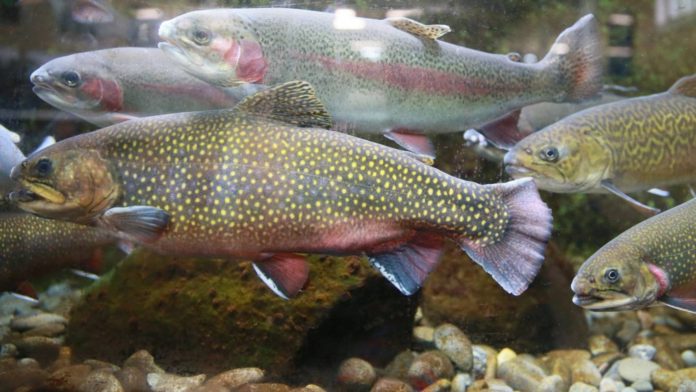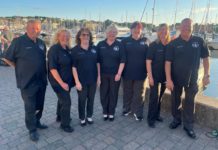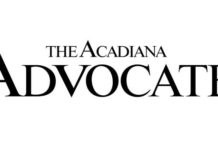Kiwi anglers are asking the Government to do more research before deciding whether to allow commercial trout farming, amid fears it could decimate a billion dollar industry.
The New Zealand Fish & Game Council voted over the weekend to oppose a controversial recommendation that the Government give commercial trout farming for food production “serious consideration”.
A council spokesman said the opposition was “because of risks to the wild trout fishery”.
He said the group would now write to the ministers of fisheries and primary industries, asking them to establish a group made up of Fish & Game, concerned iwi, and Government officials, to look into the potential risks of trout farming.
READ MORE:
* Trout farm proposal threatens $1 billion trout sport fisheries, anglers say
* The good news, and the bad, for the fishing season
* Fish Mainland – a new approach for the future of South Island recreational fisheries
In 2018, a petition calling for commercial trout farming was presented to Parliament by Golden Bay salmon farmer Clive Barker who said it would provide jobs and ease pressure on fish stocks. In August, Parliament’s primary production select committee recommended the proposal be given “serious consideration”.
New Zealanders currently require a licence, issued by Fish & Game, to catch the introduced fish, and it is illegal to sell wild-caught trout.
But the sport trout fishing industry is still worth more than $1 billion a year, according to the NZ Federation of Freshwater Anglers, and the South Island reaps most of the benefits.
Supplied
Professional Fishing Guides Association of New Zealand president Serge Bonnafoux says our global reputation would be “tarnished” if commercial trout fishing was allowed.
A Fish & Game spokesperson said 79 per cent of trout fishing licences were granted to people wanting to fish in the south, with Canterbury, the central South Island, Otago and Southland being major hotspots.
Professional Fishing Guides Association of New Zealand president Serge Bonnafoux, who is based in Canterbury’s Hanmer Springs, said allowing commercial trout farming would be one of the “biggest mistakes in the history of fishing in New Zealand”.
“New Zealand is regarded globally as a Mecca of fly-fishing. That reputation is based on the wild trout.”
Bonnafoux said 93 per cent of their clientele was from overseas, and came to New Zealand to fish for wild trout.
“The global reputation would undoubtedly be tarnished.”
He had seen the same thing happen in his native France, he said.
“It’s the pride of Kiwi anglers and guides that we have amazing rivers, which carry no risk of disease. Even if the trout farming operations took place in water that was completely separated from the main streams, there was still the potential risk.”
Bonnafoux said Finland had to eradicate whole rivers of wild salmon due to disease, and then reestablish wild populations.
SIMON O’CONNOR/Stuff
The South Island’s trout fishery is worth a lot of money that could potentially be put at risk if commercial trout farming were allowed, says Fish and Game’s chairman Alan Strong.
He said those pushing for a commercial fishery were doing so because it was “easy money”.
“That kind of easy money doesn’t last long.”
Bonnafoux said if New Zealand’s focus was to be on “high-end tourism,” as Tourism Minister Stuart Nash touted last week, “we have the perfect example of what to avoid”.
North Canterbury Fish & Game Council chair Alan Strong said the South Island’s trout fishery was worth a lot of money that could potentially be put at risk.
“There’s the fishery itself, along with a whole lot of associated industries like equipment, accommodation, fishing licence sales, guiding companies etc.”
There were concerns further nutrients would pollute waterways already under pressure from agriculture, he said.
Bejon Haswell/Stuff
A large brown trout caught near Twizel is weighed in Pleasant Point in October 2020.
“Resource capture”, where recreational anglers could no longer access fishing areas they previously had, could also be a risk.
“It’s hard to see a commercial operation generating enough income to cover what might be lost from the recreational fishery.”
Pollution has been identified as an issue in New Zealand’s commercial salmon fisheries, which are mostly centred around Marlborough and Stewart Island.
In October, the Marlborough District Council issued two fines and a warning after half of the country’s biggest salmon farming company’s farms failed to meet environmental standards.
One New Zealand King Salmon farm in Pelorus Sound’s Forsyth Bay was deemed “significantly non-compliant” due to pollution caused by fish waste and uneaten fish food falling to the seabed.
Credit: Source link































